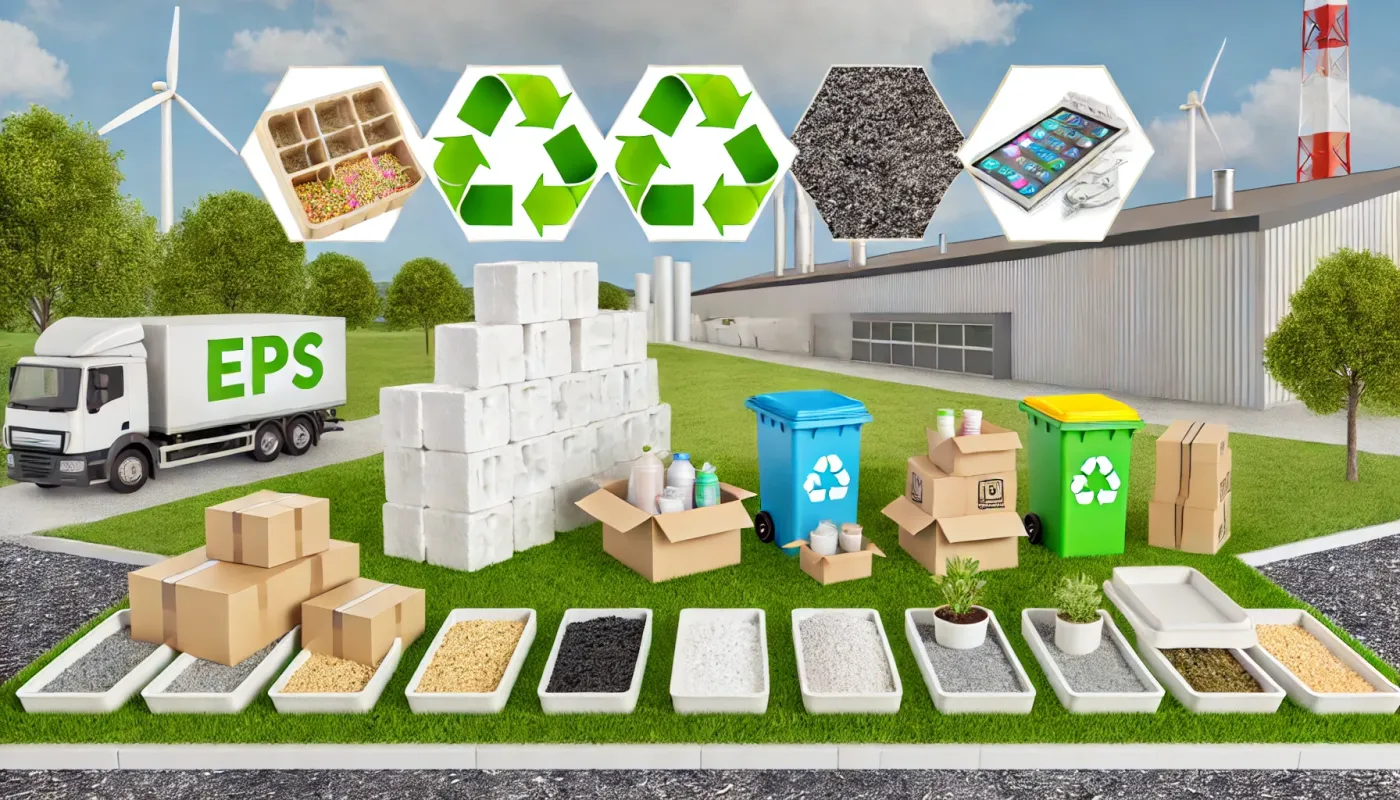Polystyrene Recycling and Sustainability Overview by Poly Design

Is Polystyrene Recyclable?
Yes, polystyrene (EPS) is 100% recyclable. Despite misconceptions, EPS can be effectively recycled, making it a sustainable option for various applications.
Can Polystyrene Be Recycled in the UK?
Yes, Expanded Polystyrene (EPS) is recycled throughout the UK and globally. It’s one of the most efficient and cost-effective insulating materials, with low thermal conductivity, making it ideal for transporting temperature-sensitive goods.
Understanding Expanded Polystyrene (EPS)
EPS is 98% air, similar to a party balloon. When you see EPS, only 2% is solid material—the rest is air. This structure makes EPS lightweight and easy to handle, yet it remains durable and effective as an insulator.
Why Is EPS an Excellent Insulator?
EPS is a closed-cell foam packed with tiny air pockets, which are poor conductors of heat. This minimizes heat transfer, making EPS reliable for both hot and cold applications. Each bead of EPS contains up to 16,000 air pockets, creating outstanding insulation for various uses.
Environmental Impact of EPS
EPS has an Ozone Depletion Potential (ODP) of zero, as no CFCs or HCFCs are used during its production. It is inert, does not leach chemicals, and is safe for food contact. Additionally, the lifecycle of EPS demonstrates far less environmental impact than other materials used for similar purposes.
Reusing Polystyrene Boxes
In cases where recycling is not available, consider reusing your EPS boxes. Here are some creative ideas:
- Cool box for picnics and drinks
- Seed germination tray or root vegetable planter
- Drainage material for plant pots
- Homemade chick brooder or hedgehog house
- Incubator for reptile eggs or storage for freezer contents during moves
Polystyrene Recycling Methods
At Poly Design, we offer two main methods for recycling EPS at our manufacturing sites:
- Granulation: Lightweight EPS is re-ground into beads and reintroduced into the manufacturing process.
- Compacting: Heavier, slightly contaminated EPS is compacted into dense bales, which are later turned into General Purpose Polystyrene Pellets (GPPS) for new products like garden fences, traffic cones, and plant pots.
The Importance of Sustainable Packaging
With the shift from in-store to online food shopping, temperature-controlled packaging has become essential. EPS ensures products remain fresh, unspoiled, and well-protected during transport. It also contributes to reducing supply chain waste, making it a valuable material for sustainable packaging solutions.
Other Uses for Polystyrene
EPS is not just for packaging—its applications extend to protecting electronics, human organs, heads (e.g., helmets), and even bees. With airpop® (another name for EPS), we continue to explore its versatility in protecting valuable items.
The Current Plastics Debate
While single-use plastic waste is a growing concern, it’s important to recognize the role that reusable and recyclable plastic packaging plays in reducing waste, protecting products, and making supply chains more sustainable. There’s still work to be done by the government and local authorities to improve recycling infrastructure for EPS.
EPS Life Cycle
EPS is manufactured using steam and pressure to fuse aerated beads together. The process is energy-efficient, and EPS products are made in modern, environmentally certified facilities, demonstrating our commitment to sustainability.
Conclusion
Polystyrene (EPS) is a highly recyclable, efficient, and sustainable material. Its versatility in insulation, protection, and packaging makes it an essential component in today’s economy, while its recyclability ensures minimal environmental impact when managed properly.